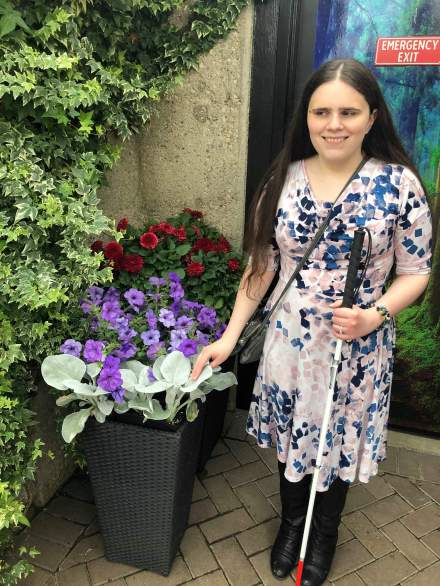In a culture that prefers disabled people when we’re smiling, I’m what you might call a bad sport. Cheerfulness in the face of a challenge is all very well, and my natural disposition is upbeat, but toxic positivity is an enemy I’ve confidently opposed for most of my life. Good vibes won’t grab a broom for you when your half-full glass is in pieces on the floor.
I’m convinced toxic positivity makes it harder for marginalized people to be honest about their pain, even with each other. Don’t get me started on the unrealistic expectations we place on ourselves when we believe the only worthy disabled person is one who does what nondisabled people do, only better. Writer and cancer survivor Barbara Ehrenreich distilled this well, observing how ‘no negativity, just vibes’ encourages us to “deny reality, submit cheerfully to misfortune, and blame only ourselves for our fate.”
Pay attention and you’ll see how much the world rewards a cheerful, reality-denying, optimistic disabled person. It celebrates them when they manage what is presumed impossible. It is satisfied when they gently, bravely accept a life that is less-than. It rewards them a whole lot less when they point out problems, admit how much their circumstances suck, or ask nondisabled people to adapt.
More and more, however, I am troubled by what happens when despair takes the place of plucky heroism. As a somewhat cynical person, I find it tempting to dwell on the ways I’ve been mistreated, overlooked, misunderstood and under-resourced. Yet, most of my proudest and bravest moments happened because I stopped dwelling, focused on what was in my control, and got shit done. If I fixated on what I wasn’t taught as a kid, I’d never have learned anything new as an adult. If I focused on what wasn’t done for me, wasn’t available to me, was denied me, I’d never have been able to build a life worth living. I am where I am in part because I knew when to wrench myself out of the disappointing past and dream of a future worth fighting for.
I’ve seen too much unnecessary and unjust suffering to believe the disability prosperity gospel, a bootstraps doctrine that refuses to hold systems to account. But I’d be lying if I didn’t admit our attitudes can sometimes determine what is possible for us in a flawed world. Determination can fill a lot of gaps left by inadequate education, poor skills training, and unenforceable accessibility legislation. I’ve scaled quite a few walls by working hard and refusing to go away. I couldn’t have done any of that if I didn’t believe on some level that the effort was worth the hardship.
I submit that nutritious negativity can hold us as we tread the murky water between frozen smiles and slumped shoulders. Nutritious negativity is a no-nonsense motherly type who sees through our pretenses and has no patience for them. She makes room for complaint. She welcomes sincere lament. She is not afraid of the anger that has fuelled justice-seekers since the beginning. She teaches us to listen, tell the truth as best we can, and practice presence as we engage with the suffering of others. Nutritious negativity doesn’t ask us to deny what is true, nor does she tolerate empty despair. While she may ask you to stop dwelling, she will grieve alongside you and never demand a smile.
I don’t want to live in a world where my genetic disorder is somehow my fault, where my chronic pain is attributed to a negative attitude, where my mental health would magically improve if I pretended harder. But I do want to live in a world where imagination and resilience will come to my rescue when imperfect systems let me down, because they always will.
We need to complain. We need to point to our half-full glasses, in pieces on the floor, and say, “This is not okay!” Only when we make space for “This is not okay,” can we progress to “This is how we make it more okay.” Dismissing those brave enough to admit more work is needed won’t change reality for disabled people; it only makes reality rosier for nondisabled people who can afford to ignore it. As is often said, privilege is being able to stay neutral because your life isn’t affected either way.
At the same time, we need wild hope and irrational optimism, because sometimes that’s all we’ve got. Plugging away at the impossible is not especially awe-inspiring, day to day, but I have seen its power, over and over again.
Some disabled people are singing songs of triumph, glowing with pride at how far we’ve come. Others are singing protest songs, overwhelmed by all the work that is left to do. Many are humming quietly, content enough but wondering, a little guiltily perhaps, if this is all there is. Let’s learn to listen to every voice in this splendidly diverse chorus. We need them all.

